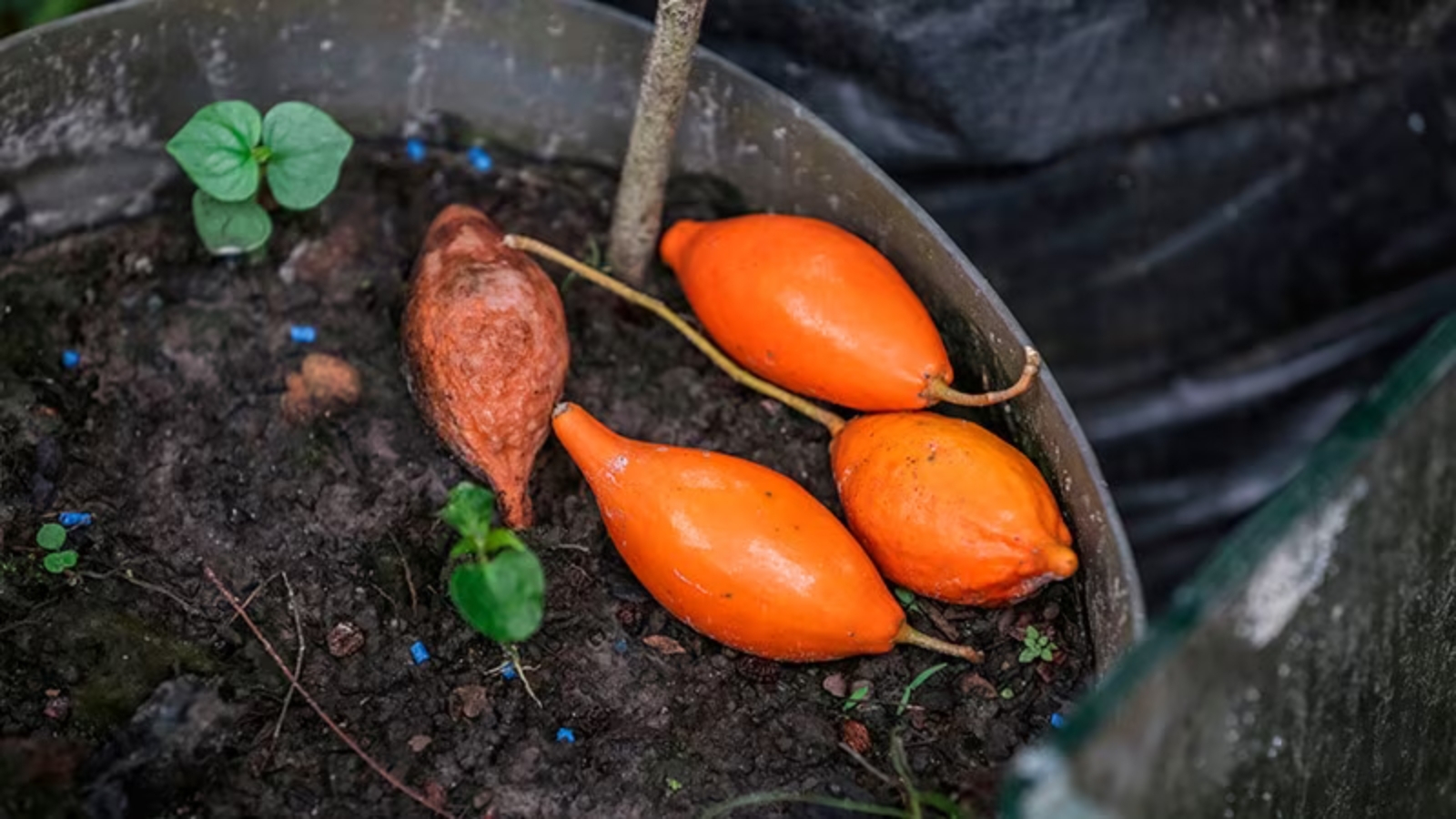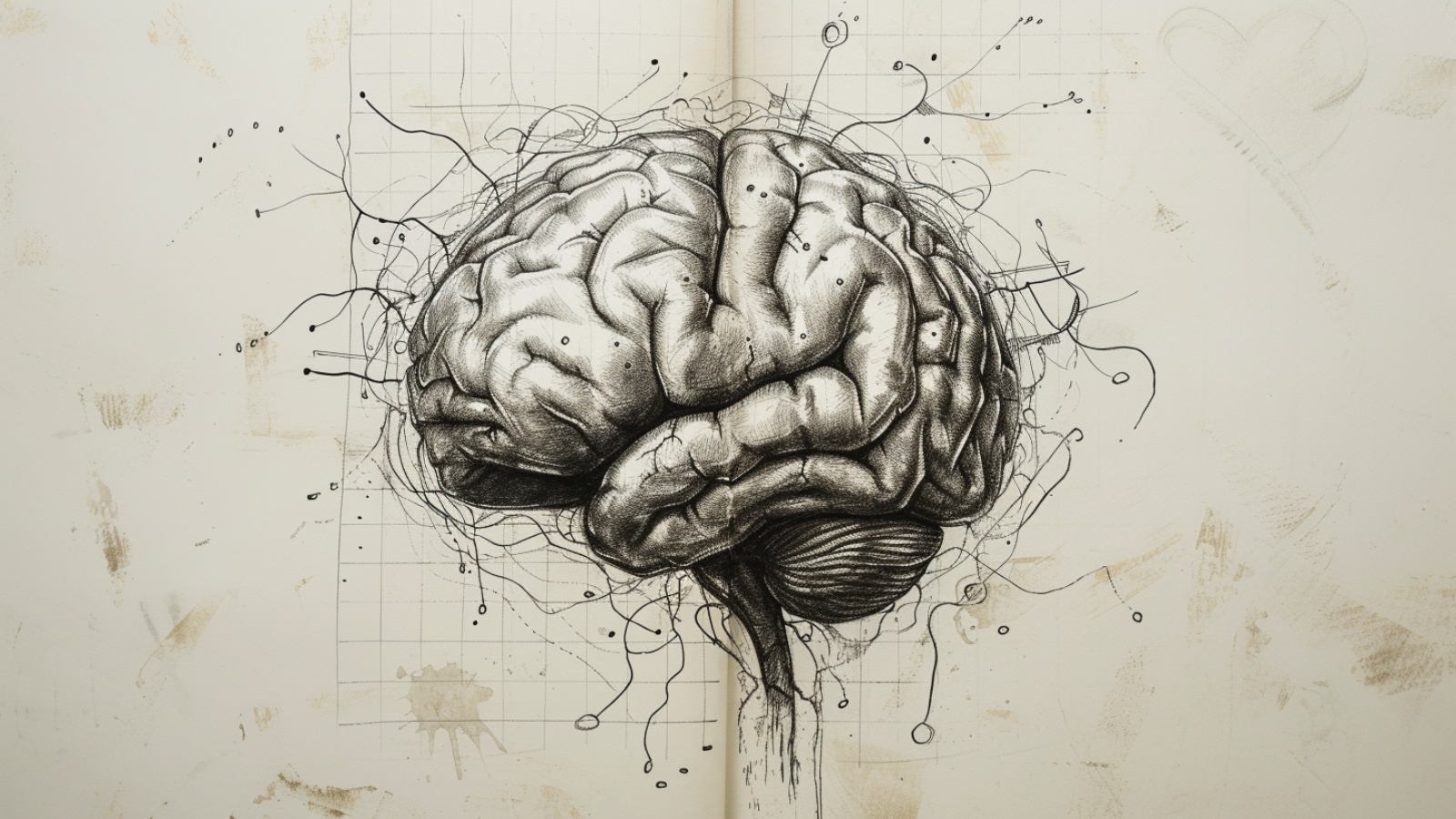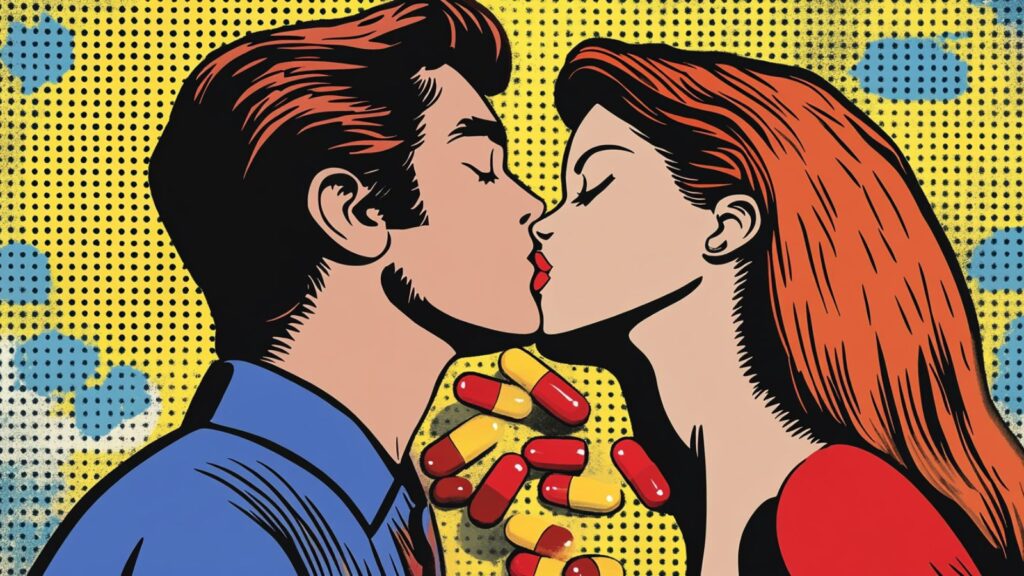Intention: To fully explore and demystify ibogaine treatment, including the process involved, testimonies from people who have undergone treatment, and important considerations for those seeking this style of treatment, healing, and recovery.
As the field of psychedelic therapy continues to expand and evolve, ibogaine is continually carving out a name for itself in this space. This distinctive substance, derived from the roots of Africa’s Tabernanthe iboga tree, captures growing interest for its unique potential in addressing addiction. With a dual nature that encompasses both psychedelic and dissociative effects, ibogaine sets itself apart from other psychedelics.
While its legal status remains complex, with prohibition in some countries like the United States and availability in certain overseas treatment centers, the intrigue surrounding ibogaine is palpable. Characterized by a two-stage experiential journey, starting with a visionary phase and transitioning to introspective reflection, ibogaine promises a transformative experience that has already changed the lives of many.
Here we take a look at ibogaine treatments to better understand its distinct characteristics and its increasing application in addiction therapy (especially for veterans). As well as survey the growing network of treatment centers outside the US. Let’s unravel ibogaine’s narrative, tracing its path from traditional African spiritual practices to its current role in mental health and addiction recovery.

Understanding Ibogaine and Its Effects
Ibogaine is a naturally occurring psychoactive substance derived from the Tabernanthe iboga tree, found predominantly in the forests of Central and West Africa. This alkaloid compound holds a unique position as a psychedelic due to its complex chemical properties and profound effects on the human psyche.
The origins of ibogaine trace back to the traditional spiritual practices of indigenous African tribes, particularly the Bwiti religion, where it has been used for centuries in healing ceremonies and rites of passage. The natural source, the iboga tree, is revered for its powerful psychoactive bark and roots, which contain a rich concentration of ibogaine, among other alkaloids.
From a chemical standpoint, ibogaine is a tryptamine with a distinct molecular structure that sets it apart from other psychedelics. This structure is responsible for its dual action as both a psychedelic and a dissociative. This unique combination is what gives ibogaine its profound ability to induce transformative experiences.
The Two Phases of Ibogaine Experience
The ibogaine experience is characterized by two distinct phases: the visionary phase and the introspection phase, each offering a unique facet of its profound impact.
The Visionary Phase: This initial phase is often described as dreamlike, where users report vivid, symbolic visions and a sense of journeying through different realms or dimensions. This phase is marked by a detachment from ordinary reality, allowing for a deep dive into the subconscious mind. The imagery and experiences during this phase can be intense and surreal, often reflecting the innermost thoughts, fears, and desires of the individual.
The Introspection Phase: Following the visionary experiences, users enter a period of introspection. This phase is where the therapeutic potential of ibogaine truly shines. Individuals often report a heightened sense of clarity and self-awareness, enabling them to confront and process deep-seated emotional issues, traumas, and addictive patterns. This introspective journey can lead to profound revelations and insights, fostering a sense of healing and renewal.
Together, these phases constitute the ibogaine experience, a journey that is as much about personal exploration as it is about healing and transformation. As we look closer at ibogaine’s effects, it becomes clear why this substance has garnered significant attention in the realm of addiction therapy and beyond.
Ibogaine in Treating Addictions
Ibogaine’s effectiveness in combating addiction is anchored in its unique interaction with the brain’s chemistry. The substance is known to act on various neurotransmitter systems, including serotonin, dopamine, and opioid receptors. It’s this multifaceted engagement with the brain’s reward and addiction pathways that underpin its anti-addictive properties.
The critical component in ibogaine’s anti-addictive action is its metabolite, noribogaine, which helps reset these neural pathways. Noribogaine tends to remain in the body for an extended period after ingestion, contributing to long-lasting effects against cravings and withdrawal symptoms commonly associated with substance dependence.
This lasting presence is essential in providing a window of opportunity where individuals can break free from the cycle of addiction and begin the process of recovery and rehabilitation.
Research and Case Studies
Recent research, including studies involving veterans grappling with addiction, has brought to light the potential of ibogaine in treating substance dependence. These studies focus on how Ibogaine therapy can aid in the recovery from severe addictions, including opioids, alcohol, and stimulants. Veterans, often battling PTSD and associated substance abuse issues, have been a key demographic in these studies, illuminating the broader implications of ibogaine’s therapeutic potential.
The growing body of clinical research indicates a significant reduction in withdrawal symptoms and cravings following ibogaine treatment. This evidence supports the anecdotal experiences of many who have undergone therapy, marking a pivotal shift in understanding and potentially treating addiction.

Personal Testimonies and Experiences
Personal accounts often provide the most poignant insights into the transformative power of substances like ibogaine. These stories offer a glimpse into real-life experiences, illustrating the profound impact on individuals grappling with deep-rooted challenges. Among these narratives, the journey of retired Navy SEAL Marcus Capone stands out, encapsulating the dramatic shift that Ibogaine therapy can catalyze.
Marcus Capone’s Transformation
Marcus Capone’s story, as reported by TIME magazine, offers a compelling testament to ibogaine’s potential. Before ibogaine, Capone, a former U.S. Navy SEAL, faced a harrowing battle with PTSD, depression, and addiction following his military service. His condition severely affected his family life, with episodes of depression, anger, and alcoholism, signaling a deep internal struggle. Psychologists diagnosed him with PTSD, and various treatments, including traditional medications, failed to alleviate his symptoms.
The turning point came when Capone decided to explore ibogaine treatment. In 2017, he traveled to Mexico and underwent an ibogaine session. The experience was intense and revelatory. He encountered a series of life-altering visions that allowed him to confront and reconcile with past traumas and losses. This 12-hour journey through his psyche was transformative.
Post-ibogaine, the changes in Capone were unmistakable. His desire for alcohol vanished, and his mental clarity improved significantly. His wife, Amber, noted a drastic shift in his demeanor—he was more present, lighter, and happier. The anger and darkness that once clouded his personality had dissipated. This profound change not only marked a new chapter in his personal life but also inspired him and Amber to start a nonprofit organization aimed at supporting other veterans in seeking psychedelic therapies.
Capone’s experience is a powerful example of how ibogaine can act as a catalyst for deep psychological healing, particularly for those suffering from the aftermath of intense trauma and substance abuse.
This story is not exclusive to Capone. Listen to Angela Hargrove’s very similar experience as her husband radically changed his life through just one ibogaine treatment and overcame multiple addictions.
The stories continue on from people whose lives have been radically changed by the power of ibogaine treatments. Watch more and hear their firsthand accounts of the experience.
The Legal and Clinical Landscape
The legal and clinical status of substances like ibogaine plays a crucial role in shaping access and treatment options. Ibogaine, with its unique therapeutic potential, particularly in addiction treatment, occupies a complex position in the global legal landscape. Understanding this context is essential for those considering ibogaine as a treatment option and for comprehending why treatments are often sought outside the United States.
Legal Status of Ibogaine Worldwide
The legal status of ibogaine varies significantly from country to country, reflecting diverse perspectives on its use and potential benefits. In the United States, ibogaine is classified as a Schedule I substance under the Controlled Substances Act. This classification denotes a drug with a high potential for abuse and no accepted medical use, making it illegal to possess, use, or distribute.
However, the legal stance on ibogaine is different in other parts of the world. In some countries, such as Canada, New Zealand, and the United Kingdom, ibogaine can be prescribed by physicians under certain conditions, recognizing its potential therapeutic value. In nations like Brazil, it is an unregulated substance, neither fully legal nor explicitly prohibited. This creates a gray area where ibogaine can be used under specific circumstances, often within a clinical or research setting.
On the other hand, countries like Sweden and Norway have classified ibogaine as an illegal substance, aligning with the United States’ prohibitionist approach. The disparity in legal status across the globe underscores the ongoing debate and differing attitudes toward ibogaine’s use in medical and therapeutic contexts.
Why Ibogaine Treatments are Sought Outside the US
Given its illegal status in the US, individuals seeking ibogaine treatment often look to countries where it is legally accessible or where regulatory frameworks are more accommodating. Treatment centers in nations like Mexico, Canada, the Bahamas, and certain South American countries have emerged as popular destinations for those pursuing ibogaine therapy.
The primary draw for seeking ibogaine treatment abroad is the opportunity to undergo a potentially life-changing therapy in a legal and professionally monitored environment. These international clinics often offer comprehensive treatment programs, including medical supervision, pre-treatment evaluations, and post-treatment support. This level of care is crucial, given ibogaine’s powerful effects and the need for a safe, controlled setting during treatment.
Moreover, the interest in ibogaine treatments abroad is driven by compelling testimonies and growing research evidence suggesting its efficacy in treating addiction and other mental health conditions. For many, the chance to break free from the cycle of addiction and experience significant psychological healing is a compelling motivator, leading them to explore options beyond the confines of their home country’s legal limitations.

Ibogaine Treatment Centers
As the interest in ibogaine as a therapeutic tool grows, so does the number of treatment centers offering this unique form of therapy. These centers, often situated in countries with more permissive legal frameworks regarding ibogaine, provide a refuge for those seeking alternative treatments for addiction, PTSD, and other conditions.
These centers vary widely in terms of the services they offer, their approach to treatment, and the level of medical oversight provided. The best centers offer comprehensive care that includes medical screening, professional supervision during the treatment, and support for integration and aftercare.
While numerous ibogaine treatment centers operate worldwide, a few have gained recognition for their high standards of care.
Clear Sky Recovery (Mexico)
Clear Sky Recovery is a pioneering ibogaine treatment facility located in the tranquil setting of Cancun, Mexico. It stands out for its medically-based approach to ibogaine therapy, offering a clinical setting that prioritizes patient safety and comfort. The center is staffed by medical professionals who specialize in ibogaine administration and are experienced in managing the unique requirements of detoxification and addiction treatment.
Clear Sky Recovery’s program is designed to address both the physical and psychological aspects of addiction, providing a foundation for long-term recovery. Their commitment to research and evidence-based treatment protocols makes Clear Sky a trusted destination for individuals seeking a transformative healing experience.
The Holistic Sanctuary (Mexico)
Situated along the beautiful coastline, The Holistic Sanctuary offers a luxurious setting for those seeking ibogaine treatment. Known for its “Pouyan Method,” the center combines ibogaine therapy with a range of holistic healing techniques, including hyperbaric oxygen therapy, plant-based nutrition, and meditation.
Their program is tailored to address not just addiction but also underlying issues such as PTSD, depression, and anxiety, making it a favored choice for veterans and individuals looking for a comprehensive approach to recovery. The center emphasizes privacy, personalized care, and a commitment to helping clients achieve lasting transformation.
Root Healing (Portugal)
Nestled in the picturesque landscape of Sintra, Portugal, Root Healing is a retreat that specializes in traditional ibogaine ceremonies. Root Healing emphasizes the spiritual and therapeutic aspects of ibogaine, guided by experienced facilitators who ensure a safe and nurturing environment.
Their program is tailored to foster personal growth, healing, and a deeper understanding of one’s self and life’s purpose, making it a haven for those in search of transformative experiences.
Awakening in the Dream House (Mexico)
Located in Puerto Vallarta, Mexico, Awakening in the Dream House offers a unique ibogaine treatment experience focusing on individual care and an intimate setting. The center provides medical supervision and a supportive community atmosphere, ensuring safety and comfort throughout the treatment process.
Their approach integrates post-treatment support and counseling to help individuals integrate their experiences and make lasting changes in their lives.
What to Expect During Treatment
Undergoing treatment at an ibogaine center involves several stages, designed to ensure the safety and effectiveness of the therapy. Here’s a general outline of what patients can expect:
- Pre-Treatment Evaluation: Comprehensive medical and psychological screening to assess suitability for Ibogaine therapy and identify any potential risks.
- Treatment Session: The actual Ibogaine administration, which typically lasts 24-36 hours. During this time, patients are closely monitored by medical professionals and supported through the visionary and introspective phases of the experience.
- Integration and Aftercare: Post-treatment support is crucial for helping patients process their experiences and apply the insights gained to their lives. Many centers offer counseling, therapy, and resources for integrating these profound changes.
Choosing to undergo ibogaine treatment is a significant decision that requires careful consideration and preparation. Prospective patients should thoroughly research and consult with professionals to ensure they select a reputable center that aligns with their needs and offers the highest standards of care.

The Road to Recovery
The journey through ibogaine treatment unfolds a new chapter in the narrative of healing and recovery, offering a glimmer of hope where traditional methods have faltered. The stories of transformation, underscored by rigorous clinical research and personal testimonies, echo the profound impact ibogaine can have on the human spirit.
Yet, the path to wider acceptance and utilization of ibogaine is fraught with legal hurdles and scientific inquiries. The diversity in legal status across the globe highlights the complexity of integrating such a potent therapy into mainstream medicine. It is imperative that the conversation around ibogaine and psychedelics at large evolves to reflect their therapeutic potential, backed by empirical evidence and compassionate understanding.
As we stand on the brink of a new era in mental health treatment, the promise of ibogaine offers not just a solution for those in immediate need but also a broader reflection of our approach to healing. The call for further research and open dialogue is not just about legitimizing a substance but about embracing a holistic perspective on wellness, recovery, and the human capacity for change.
The future of ibogaine treatment, and indeed of psychedelic therapy, hinges on our collective willingness to explore, understand, and advocate for these powerful tools of transformation. As we venture into this uncharted territory, let us do so with open minds, rigorous scientific inquiry, and a commitment to unlocking the potential of ibogaine for the betterment of all.













